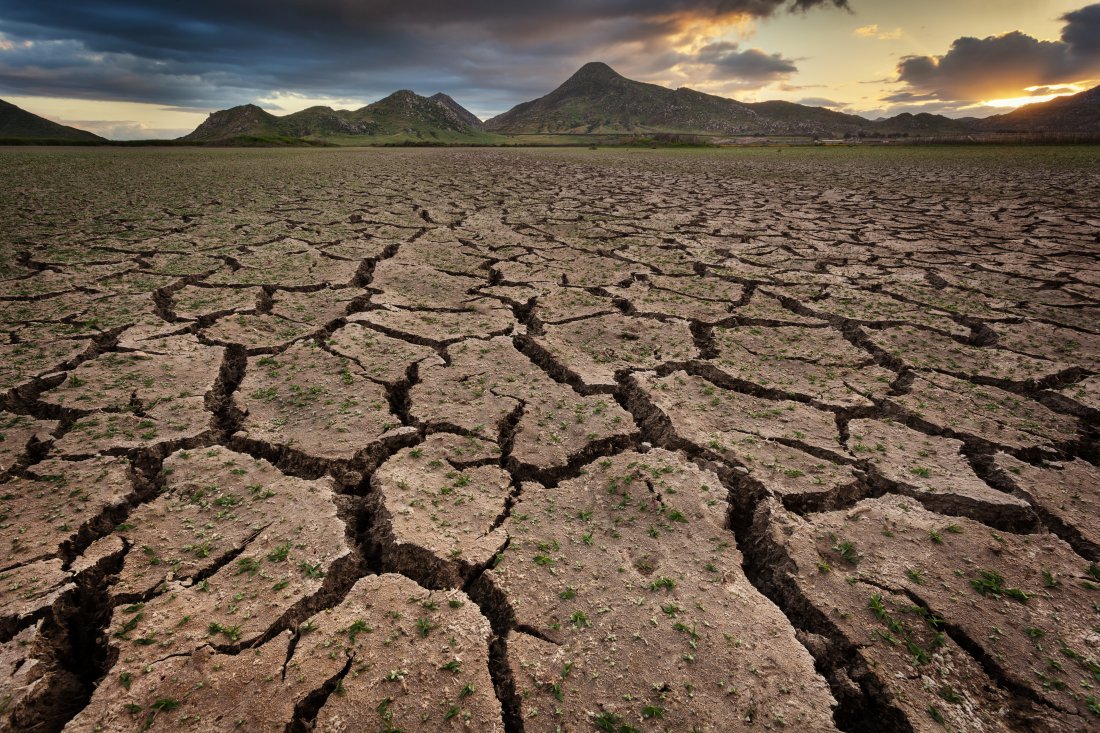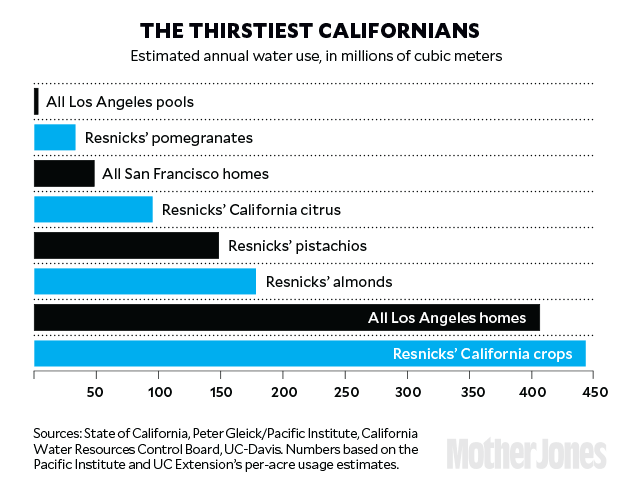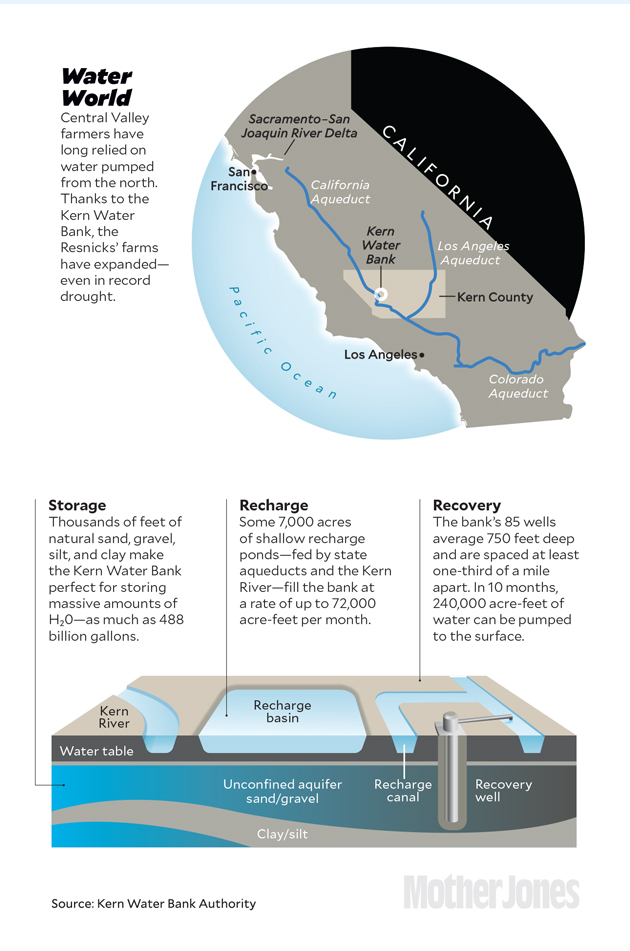
CALIFORNIA'S WATER CRISIS
PEOPLE CAN SURVIVE WITHOUT MONEY BUT THEY CANNOT LIVE WITHOUT WATER.

The state of California is the most populous state in the U.S. and a major agricultural producer. Yet California also has intense droughts that are getting more severe over time. With the combined effects of climate change and population growth, a water crisis will eventually lead to severe environmental and economic impacts in the state. Precipitation in California is limited, with the vast majority of the water and snowfall occurring in the winter months in the northern parts of the state. This delicate balance means that a dry rainy season can have lasting consequences. Part of the problem is that vast amount of the American South West is an artificial creation. And when the water dries up in these areas, it will be very difficult to sustain human life.
California's water infrastructure faces numerous challenges, including limited reservoir capacity, leaky distribution systems, and a questionable system of levees that experts say may not be able to sustain an earthquake or other natural disaster. Cities like Silicon Valley may act as a key technological hub. But if Silicon Valley can't get access to water in a few years, all their technology will be useless.
One would think that given the severity of the threat, that the water supply would be closely monitored and regulated. This is the case for many of California's residents, who are forced to use a limited amount of water for their lawns and showers. But this is not the case for the wealthy.
THE WEALTHY COUPLE USING MORE WATER THAN ALL LOS ANGELES HOMES

The Resnicks are a couple that use more water for their business than all of the homes in Los Angeles. They own Teleflora, Fiji Water, Pom Wonderful, Halos oranges and Wonderful Pistachios. The Resnicks are the world's biggest producers of pistachios and almonds, and they also hold vast groves of lemons, grapefruit, and navel oranges. They claim to own America's second-largest produce company, worth an estimated $4.2 billion. Through shrewd political maneuvering, they now consume more of the state's water than any other family, farm, or company.
So there is a dangerous absurdity here. In a state with a water crisis, the people who consume most of the water are using this valuable resource to grow almonds, a crop that wastes an unimaginable amount of water. Almonds require about 1 gallon of water for each individual almond (Mother Jones, 2-24-14).
It would seem that Resnick's stockpiling of the state's most precious resource (water) would attract criticism. But the Resnicks are shrewd political operators. They have also used their money for "progressive" projects. The couple's political and charitable donations topped $48 million in 2015. In 2015, the Resnicks also rebranded all their holdings as the "Wonderful Company" to highlight their focus on philanthropy.
But not everyone thinks that their company is "wonderful."
"I think the Wonderful Company and the Resnicks are truly the top 1 percent wrapped in a green veneer, in a veneer of social justice," says Barbara Barrigan-Parrilla of Restore the Delta, an advocacy group that represents farmers, fishermen, and environmentalists in the Sacramento-San Joaquin River Delta, east of San Francisco. "If they truly cared about a sustainable California and farmworkers within their own community, then how things are structured and how they are done by the Wonderful Company would be much different."
The Resnicks also rub shoulders with big name Hollywood stars, including Barbra Streisand, James Brolin, and Tom Hanks.
But what the Resnicks are doing with the state's limited water supply is anything but wonderful. The Resnicks have turned to the state's dwindling reserve of groundwater, sinking wells hundreds of feet deep on their land. Farmers are the main reason that California now pumps nearly seven cubic kilometers of groundwater a year, or about as much total water as what's used by all the homes in Texas. Sucking water from deep underground has caused the surrounding land to settle as the pockets of air between layers of soil collapse, wreaking havoc with bridges and even gravity-fed canals. Though California passed its first-ever groundwater regulations in 2014, water districts won't be required to limit pumping for at least another four years.
CALIFORNIA GIVES AWAY EMERGENCY WATER SUPPLY PAID FOR BY TAX PAYERS
TO WEALTHY COUPLE
And what's even more disturbing is that the state has given water away to the Resnicks on the tax payer's dime. Under California's laws, those with senior water claims are supposed to be the last to be restricted. But the Resnick's water rights were not senior. Worried about getting a short shrift on water deliveries, the Resnicks and other farmers in five local water districts threatened legal action. So in 1995, state officials agreed to a deal or, as it has been suggested, a staggering giveaway. These farmers had to relinquish 14 billion gallons of "paper water"—junior water rights that exist only de jure, since there simply isn't enough rainfall most years to fulfill them. In exchange, they got ownership of the Kern Water Bank, a naturally occurring underground reservoir that lies beneath 32 square miles of Kern County, which sits toward the southern end of the Central Valley. The bank holds up to 488 billion gallons of water, and because it sits beneath a floodplain, it could be easily recharged in wet years with rainfall and surplus water piped in from the Delta. The Resnicks, who'd given up the most paper water rights, came to hold a majority vote on the bank's board and the majority of its water. The Resnicks gained control over 246 billion gallons, enough to supply all the residents of San Francisco for 16 years.
The Kern County Water Bank was originally acquired in 1988 by the state to serve as an emergency water supply for the Los Angeles area—at a cost to taxpayers of $148 million in today's dollars. In 2014, a judge ruled that the Department of Water Resources had turned the water bank over to the farmers without properly analyzing environmental impacts. Adam Keats, senior attorney at the Center for Food Safety, describes the transfer of the water bank to the Resnicks and other farmers as "an unconstitutional rip-off."

The Resnicks claim that they don't wield any political power. Yet they've given six-figure sums to every California governor since Republican Pete Wilson. They donated $734,000 to Gray Davis, including $91,000 to oppose his recall. Then they gave $221,000 to his replacement, Arnold Schwarzenegger, who has called them "some of my dearest, dearest friends." The $150,000 they've given to Jerry Brown since 2010 might not seem like a lot by comparison, but no other individual donor has given more. The Resnicks also have chipped in another $250,000 to support Brown's pet ballot measure to fund education.
THE QUESTIONABLE "SOLUTION" TO CALIFORNIA'S WATER CRISIS
Governor Jerry Brown has also announced a $15 billion plan that he has framed as a solution to the state's water crisis. The plan involves constructing two 40-foot-wide tunnels that could carry 67,000 gallons of water per second from the Sacramento River, to the Central Valley. The tunnels would completely bypass the ecologically sensitive Delta, eliminating much of the smelt-endangering pumping—and, by extension, many of the restrictions on Delta water diversions that have crimped the Resnicks' supply. This may sound like a victory for fish and farmers, but environmentalists fear that this project will remove so much freshwater from the Delta that it will become too salty.
And in June 2015, Rep. David Valadao, a Republican from the Valley, introduced a bill that would force federal regulators to release more Delta water for agriculture. (The Resnicks have given more than $18,000 to Valadao's campaigns since 2011.)
Is it worth it to squander California's limited water supply for money? Can people in the most populated state in the nation live without water? We think not.
QUESTIONABLE LEGISLATION
California Water Action Plan 2016 Update PDF (Updates to the state's water plan rolled out by Governor Jerry Brown)
Brown defends delta tunnels as he rolls out tweaks to water plan (LA Times, 1-14-16)
H.R. 2898 (114th): Western Water and American Food Security Act of 2015
Rep. David Valadao's bill that would force federal regulators to release more Delta water for agriculture
REAL SOLUTIONS
Sustainable Groundwater Management Act of 2014
RELATED WORLD FUTURE FUND REPORTS
RELATED NEWS ARTICLES
Oroville Dam isn’t the only piece of California flood infrastructure under strain (The Sacramento Bee, 2-14-17)
Meet the California Couple Who Uses More Water Than Every Home in Los Angeles Combined (Mother Jones, 8-9-16)
In California, Stingy Water Users Are Fined in Drought, While the Rich Soak (New York Times, 11-21-15)
Will California's Levee System Hold up in an Earthquake? (NBC Bay Area, 2-2-15)
It Takes How Much Water to Grow an Almond?! (Mother Jones, 2-24-14)